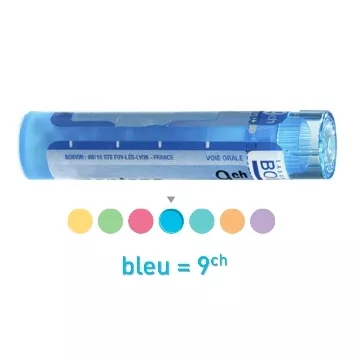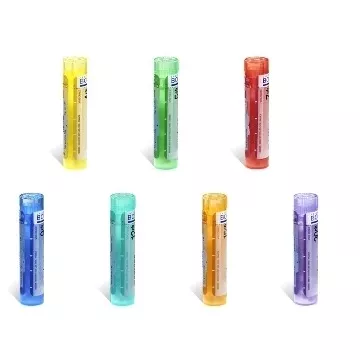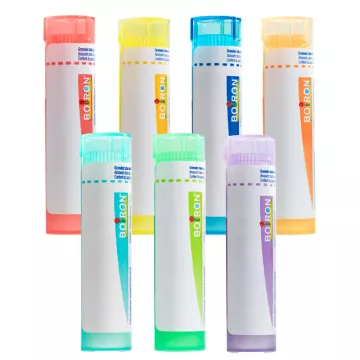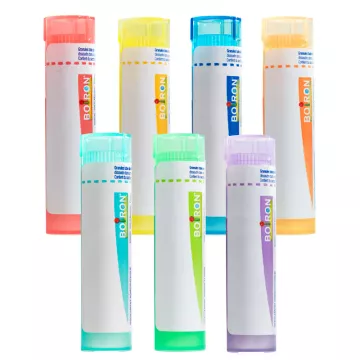








What is pruritus and what are its main causes?
Pruritus, commonly known as itching, is an irritating sensation that makes you want to scratch your skin. It can be caused by a variety of factors, including skin disorders, allergic reactions, or internal conditions such as liver or kidney disease. Pruritus can be classified into two main categories: cutaneous pruritus and systemic pruritus. Cutaneous pruritus is generally caused by skin problems such as eczema, psoriasis or irritation. Systemic pruritus, on the other hand, may be the symptom of more complex diseases requiring extensive medical investigation.
How can you tell the difference between benign pruritus and a symptom of a more serious condition?
Benign pruritus is often temporary and linked to easily identifiable causes such as dry skin or an insect bite. This itching usually disappears with simple treatments or changes in skin care routine. On the other hand, persistent, generalized pruritus or pruritus associated with other symptoms such as jaundice, unexplained weight loss or skin changes could signal a more serious underlying condition. In such cases, it's crucial to consult a healthcare professional for a thorough evaluation.
What are the best practices for treating pruritus?
Treatment of pruritus varies according to its cause. For mild itching, the use of moisturizing creams,antihistamines or calamine-based lotions can be effective. For more severe itching, topical treatments such as cortisone creams or systemic treatments may be prescribed by a dermatologist. It's also important to maintain good skin hygiene and avoid known irritants such as certain fabrics or chemicals.
How can pruritus be prevented?
Preventing pruritus mainly involves maintaining good skin health. We recommend using mild soaps, moisturizing the skin regularly, and wearing suitable clothing that doesn't rub against the skin. It's also advisable to manage stress, as it can exacerbate skin conditions and allergic reactions. Finally, a balanced diet rich in vitamins and minerals can help maintain skin health and reduce the risk of itching.
How does modern technology help manage pruritus?
Technological advances have greatly improved the management of pruritus. Mobile applications now make it possible to track the evolution of symptoms and skin condition, facilitating consultation with dermatologists. In addition, telemedicine offers the possibility of remote consultations, which is particularly useful for patients living in remote areas or having difficulty travelling. Laser treatments and phototherapy are also modern options for treating skin conditions linked to persistent pruritus.
What are the possible side effects of pruritus treatments?
Although effective, pruritus treatments can sometimes have side effects. Cortisone-based creams can cause skin thinning, stretch marks or discoloration when used over a long period. Antihistamines, while effective in reducing itching, can cause drowsiness, dry mouth and gastrointestinal upset. It's important to consult a healthcare professional before starting any treatment to understand the associated risks and benefits.
Are there any natural remedies for pruritus?
Yes, several natural remedies can help relieve pruritus. Applying aloe vera gel can soothe itching thanks to its anti-inflammatory and moisturizing properties. Colloidal oatmeal baths are also renowned for their soothing effect on irritated skin. Essential oils, such as peppermint oil or tea tree oil, can be diluted and applied to the skin to reduce inflammation and itching. However, it's crucial to test these remedies on a small area of skin to avoid any allergic reaction.
How is pruritus diagnosed by healthcare professionals?
Diagnosis of pruritus usually begins with a thorough history and physical examination. The doctor may ask questions about medical history, associated symptoms, and products used on the skin. Skin tests, such as skin biopsy or allergy tests, can be performed to identify specific causes. Blood tests can also be carried out to detect systemic diseases that can cause itching, such as liver or kidney disorders.
Can pruritus be a symptom of stress or anxiety?
Yes, pruritus can be linked to stress or anxiety. Chronic stress can lead to skin inflammation and exacerbate existing conditions such as eczema or psoriasis. Anxiety can also cause psychogenic itching, where the itching sensation is induced by psychological rather than physical factors. Stress management through relaxation techniques, meditation or yoga can help reduce stress-related itching.